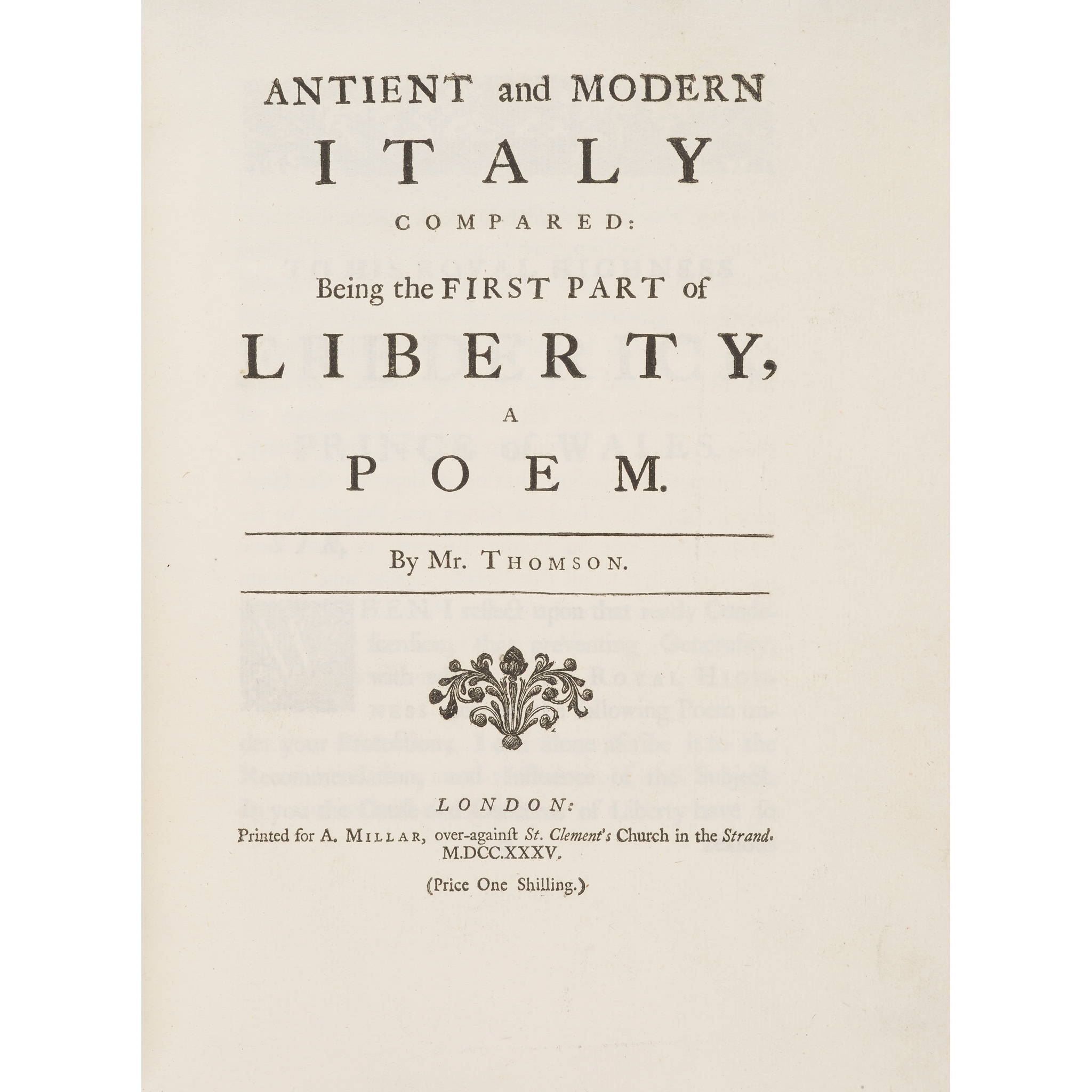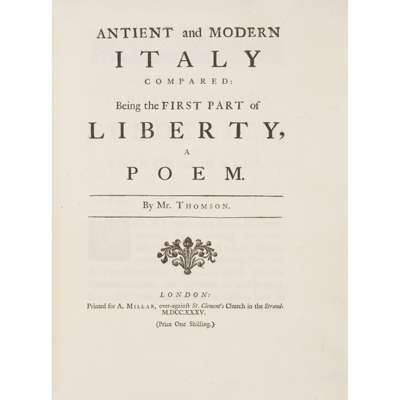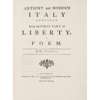
Lot 103

Thomson, James
Liberty, a Poem


The Library of James Stirling, Mathematician
Auction: 23 October 2025 from 13:00 BST
Description
[comprising:] Antient and Modern Liberty compared: being the First Part of Liberty, a Poem; Greece: being the Second Part; Rome: being the Third Part; Britain: being the Fourth Part; The Prospect: being the Fifth Part. London: for A. Millar, 1735-6. 5 parts in 1 volume, 4to (28.1 x 21.4cm), contemporary sprinkled calf, gilt spine, red morocco label, half-title to each part, final advertisement leaf to parts 1 and 5, part 1 title-page retaining price ‘one shilling’ at foot [Rothschild 2425 for part 1]
Footnote
First editions, on large paper, the volume presented by the author to James Stirling, inscribed ‘Donum authoris' by Stirling on the front pastedown.
Thomson wrote Liberty after acting as travelling companion over the years 1730 to 1733 to Charles Talbot, the son of the Solicitor General. The poem was published in five parts, three in early 1735, the remaining two a year later. Even if it was not a success, Thomson set great store by it. Stirling and Thomson met as tutors at Watts's Academy in Little Tower Street, London, which had been opened in 1715/16 by Thomas Watts (1695–1742?), the mathematician and entrepreneurial agent. Stirling had made his way to London by 1725 after his time in Venice. Thomson would have already encountered Newtonian scientific ideas when at Edinburgh University and would have grasped these more surely through his acquaintance with Stirling and the Academy’s programme of lectures on Newtonian topics, which was delivered principally by Stirling and whose contents were advertised in a published syllabus (A Course of Mechanical and Experimental Philosophy, 1727). Watts’s Academy was to be Stirling’s address for the next ten years. During this time, Watts became a director in the Sun Fire Office that held the lease for the Scots Mining Company at Leadhills. In 1735, doubtless with Watts’s support, Stirling was appointed Chief Agent at Leadhills and eventually lived in Scotland full-time. He remained in the post until the end of his life.

